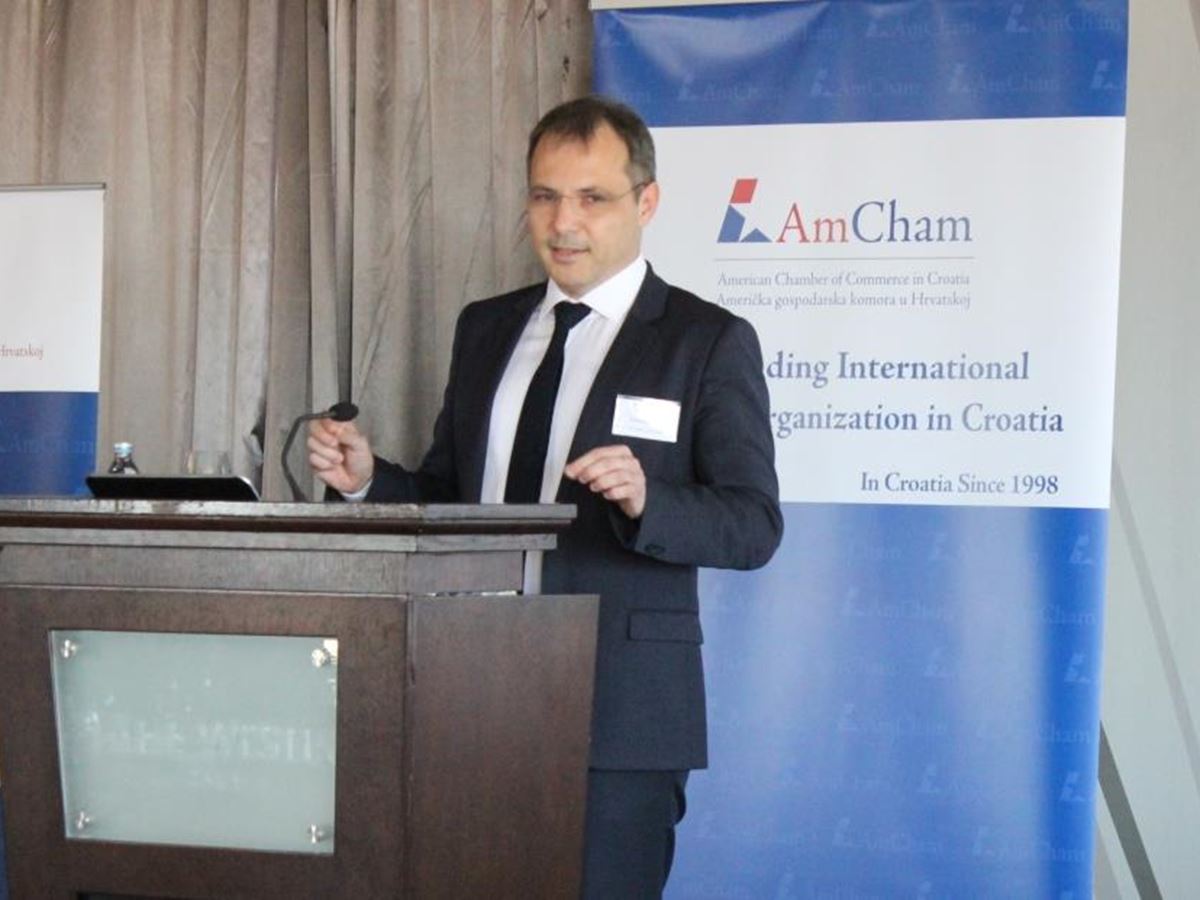The Role of Foreign Direct Investments in the Changing Global Economy
The American Chamber of Commerce in Croatia organized a business lunch, the focus of which was the role of foreign direct investments in the changing global economy.
The keynote speech on the general role of foreign direct investments (FDI) was delivered by Tomislav Čorak, Principal at The Boston Consulting Group.
The panel discussion “Croatia as an Investment Destination – Time for a Breakthrough?”, moderated by Eliana Čandrlić, included distinguished guests from both public and private sector: Tomislav Pokaz (Government of the Republic of Croatia), Zdenko Lucić (Agency for Investments and Competitiveness), Damir Zec (IBM Hrvatska), and Bojan Poljičak (Adecco).
In 2014, 10% of companies in Croatia had above 50% foreign ownership. With regard to foreign companies' significant presence in the Croatian economy, their contribution to export (37%), revenue (23%), and investment (26%) clearly indicates their high productivity, through which they contribute to the strengthening of Croatia's economic competitiveness.
During the last two decades, countries in Central and Eastern Europe have built their economic development on attracting export-oriented 'greenfield' investments in production or joint service industries, while Croatia's investments have, for the most part, been aimed at the non-tradeables sector, e.g. financial services and trade, to a great extent directed at limited local expenditure.
Today, investors in Central and Eastern European countries are facing a serious lack of new potential employees with certain profiles, skills and knowledge. Existing investments have already hired most available candidates of certain profiles, and additional demand in these conditions has led to an increase in salary and cost of labor during previous years. A possible availability of these in-demand employee profiles is one of the reasons behind the increased interest in Croatia.
This is definitely an opportunity for Croatia, but we need to develop a recognizable profile as an investment destination, adapt our educational system to labor market demands, develop a human potential map which will allow investors access to knowledge and qualification databases (classified by geographic location), and as a nation become specialized for competency development in certain industries, through which the country will become recognizable.
Furthermore, the Agency for Investments and Competitiveness should be given an appropriate budget for promotional activities abroad in order to actively promote Croatian investment opportunities and the country's positioning as an investment destination.
IBM's investment in a global innovation center in Croatia illustrates that high-profile investments are possible, and should be further encouraged.
Participants agreed that, taking Croatian economic characteristics into consideration, we should focus on attracting investments related to ICT, research and development, and niche production. Croatia should focus its efforts on sectors in which it has traditionally proven successful, basing economic growth on these areas, as well as attracting additional foreign investments.
The current political stability and economic growth are positive indicators for investors, and it should be noted that Croatia is slowly returning to its pre-war state with regard to value of investments. However, this time around, the structure is directed at ‘greenfield’ investments (export-oriented production and the service industry).
























